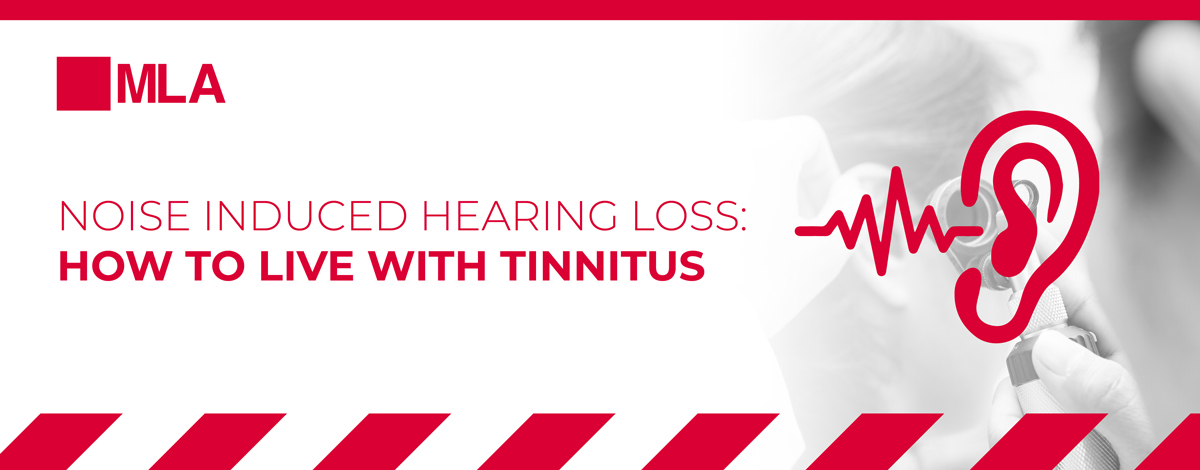In previous blogs, we’ve discussed the many causes of Tinnitus (a ringing in the ears) – ranging from ototoxic drugs that harm the cochlea to benign tumours on the auditory nerve. However, Noise Induced Hearing Loss is still the most common cause – and as there is no cure, it’s vital sufferers know how to cope with their symptoms and live happily with Tinnitus.
What is the relation between NIHL and Tinnitus?
It is incredibly common for sufferers of Noise Induced Hearing Loss to also suffer from Tinnitus, which is why the prevention information to protect against each condition is similar. But first, it’s important to understand how both conditions can develop.
Your ear is made up of hundreds of tiny, delicate hair cells – and after exposure to loud noises above 85 decibels, these hair cells can become damaged. The longer an individual is exposed to this noise, the greater the damage and the likelihood of developing permanent hearing loss and tinnitus increases.
For example, the noise levels at concerts, nightclubs and cinemas usually reach around 105 decibels - that’s 20 decibels over the safe listening level. When attending events which reach this level of noise disturbance, it is advised to use earplugs as they will bring listening levels down by 20 decibels. For more information on the types of earplugs available, read our previous blog on Music and Tinnitus.
At MLA, we have a variety of treatments available to reduce the symptoms of Tinnitus as part of our NIHL services, including:
Tinnitus Retraining Therapy
This is a type of sound therapy that is used to retrain the client’s brain to tune out and be less aware of their Tinnitus. Sound therapy is the use of external sound to mask the internal sound of Tinnitus. This mitigates tinnitus on a number of levels:
- external sound can partially or completely cover the Tinnitus sounds, and can also divert the patient’s attention while the sound is being played, providing immediate relief.
- helps habituation, where the brain is trained over time to reclassify Tinnitus as an unimportant sound that should be ignored.
- the use of specialised sound minimises the hyperactivity in the brain thought to be the underlying mechanism of Tinnitus.
This therapy involves a combination of sound therapy and counselling (CBT) to assist with the emotional and behavioural effects of living with tinnitus.
Seeking appropriate professional help is always advised, however, the British Tinnitus Association outlines some useful self help methods to reduce the symptoms of Tinnitus which can be done at home, including meditation, cutting down on caffeine, or using a sound machine. You can read all of their tips and recommendations here.
Reliable Audiology and NIHL reports from MLA’s medical experts
Here at MLA, we have a dedicated team of experienced experts who provide timely, accurate and detailed Audiology and NIHL reports for the diagnosis and quantification of NIHL and Tinnitus grading. As industry leaders, we take pride in delivering a full range of NIHL screenings, including Audiology Screening, ENT Reports and CERA Testing.
To learn more about our expertise - and what we can do for you - take a closer look at our services.

